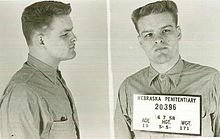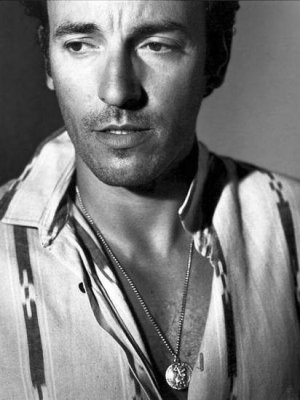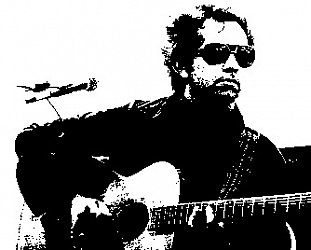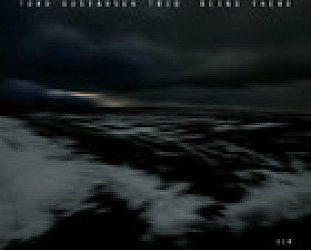Graham Reid | | 2 min read

It has been more than 35 years since Bruce Springsteen's Nebraska, an album that many fans – and Springsteen himself – consider pivotal in his career and an artistic breakthrough into new and rewarding territory beyond rock'n'soul.
After the sometimes bombastic heroics and escapism of Born to Run, it's more muted and humane Darkness on the Edge of Town and the double album The River, Springsteen – by then more than a decade on the road, often playing two and three hour shows – settled for downbeat demo sessions in songs about outsiders, characters on the margins of society and small town lives.
Having soaked himself in Woody Guthrie and movies – he cites the grim-noir thriller Night of the Hunter as pivotal – while exploring Jimmie Rodgers, Hank Williams, Robert Johnson, John Lee Hooker and Bob Dylan, Springsteen decided the acoustic demos would be the next album, a real left turn from rock into lo-fi storytelling.
There was no Beat poet joy and freedom in these songs from the road, just flight, shadowland and consequences.
He rejected one called Born in the USA which he would pull up later when the E Street Band assembled again.
The title track of '82's Nebraska album (an Essential Elsewhere album incidentally) – which may have been prompted by his manager Jon Landau who turned Springsteen on to serious films – is one he spent a lot of time on, paring it back and researching. It has a dark premise.
Charles Starkweather and his 14-year old girlfriend Caril Ann Fugate murdered 11 people during an eight-day killing spree in Nebraska and Wyoming in late 1957 and early 1958.
Their story inspired a number of films, among them Oliver Stones' almost operatic and very violent Natural Born Killers.
A much more understated (but no less violent) version was by Terence Malick in '73. It was entitled Badlands.
 The Springsteen song Nebraska is not just close in spirit to Malick's film but also draws its imagery directly from it in many places.
The Springsteen song Nebraska is not just close in spirit to Malick's film but also draws its imagery directly from it in many places.
Springsteen had seen the film then did his own reading and research (see clip below).
Some of the lines attributed to Starkweather came from that research.
Springsteen was also influenced by the spare writing style of the author Flannery O'Connor whose work he had been reading.
And it is very like Dylan in his delivery.
So this is not really reportage as he says but rather a retelling of the story using the facts and imagination.
I saw her standin' on her front lawn just twirlin' her baton
Me and her went for a ride sir and ten innocent people died
From the town of Lincoln, Nebraska with a sawed-off .410 on my lap
Through to the badlands of Wyoming I killed everything in my path
I can't say that I'm sorry for the things that we done
At least for a little while sir me and her we had us some fun
The jury brought in a guilty verdict and the judge he sentenced me to death
Midnight in a prison storeroom with leather straps across my chest
Sheriff when the man pulls that switch sir and snaps my poor neck back
You make sure my pretty baby is sittin' right there on my lap
They declared me unfit to live said into that great void my soul'd be hurled
They wanted to know why I did what I did
Well sir I guess there's just a meanness in this world





post a comment